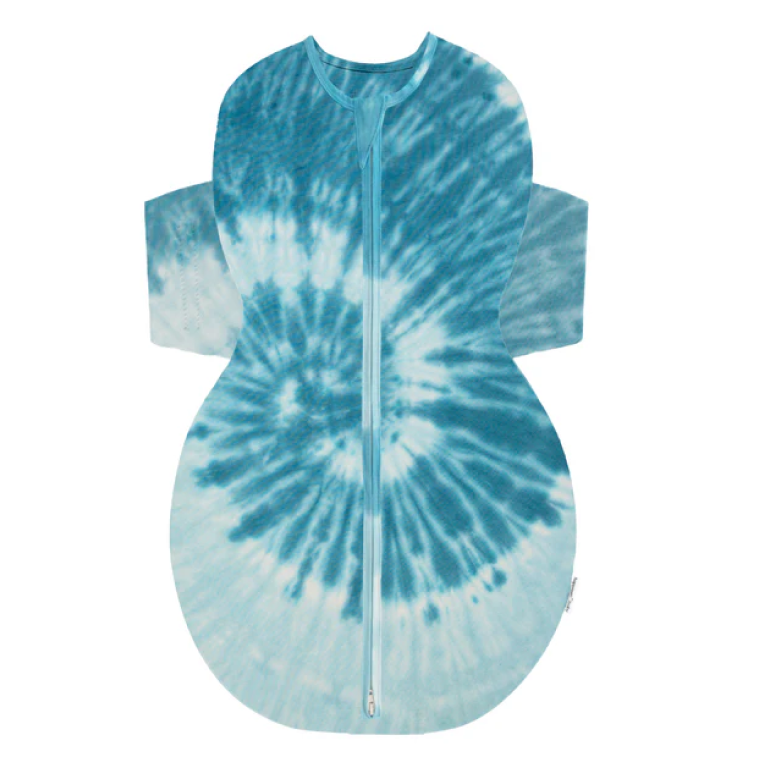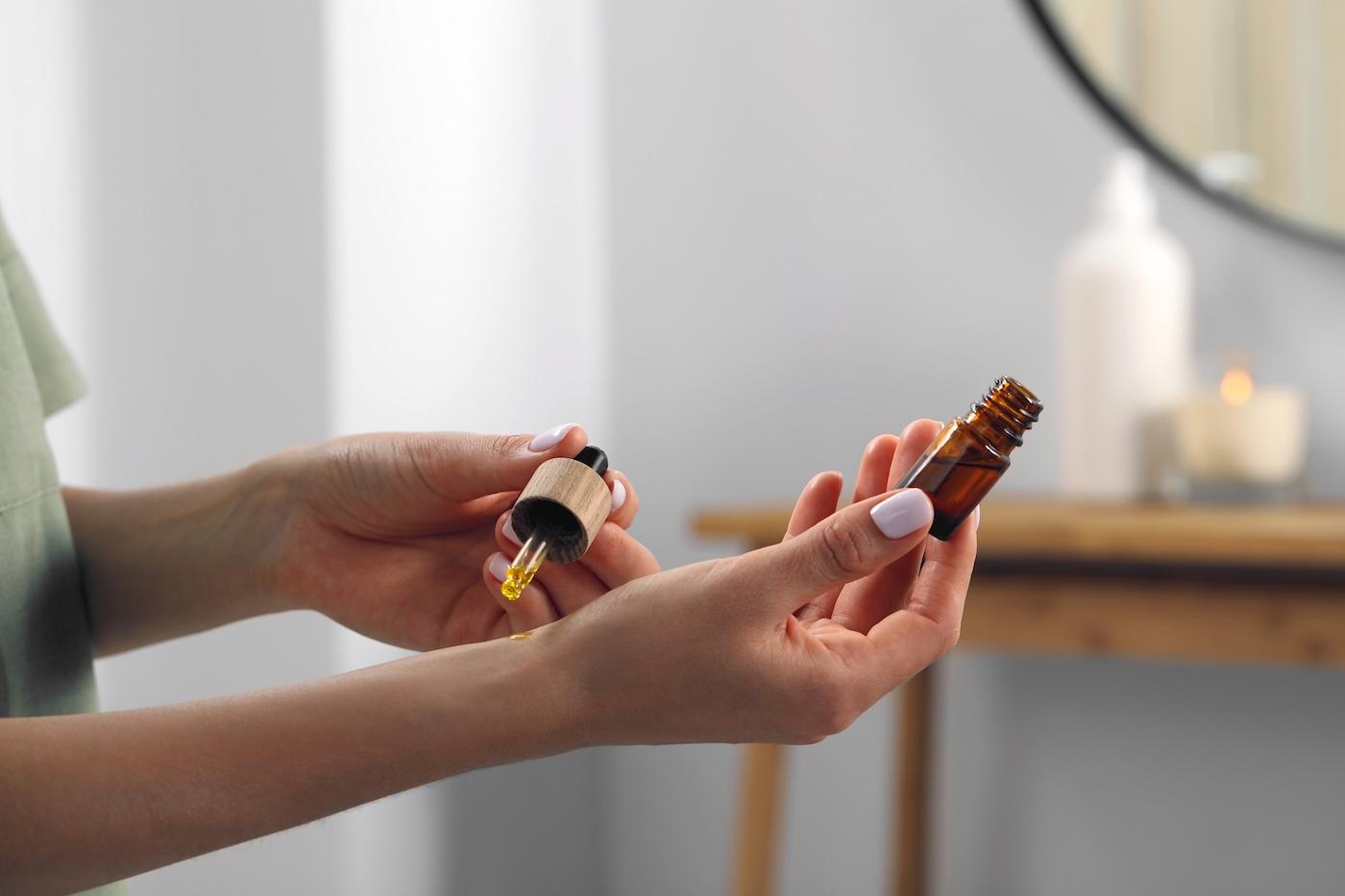PREGNANCY
Can You Eat Sour Cream During Pregnancy?
Read this before your next Taco Tuesday!

Written by
Happiest Baby Staff

Good news for taco night: Yes, you can eat sour cream while you’re pregnant as long as it’s made from pasteurized milk or cream, stored properly, and enjoyed in moderation.
Is sour cream safe during pregnancy?
The sour cream you find on grocery shelves in the US and many other countries is made with pasteurized cream. In the United States, federal standards define sour cream as the product of souring pasteurized cream with lactic-acid–producing bacteria. The pasteurization process significantly lowers the risk of harmful germs like Listeria—a bacteria that can cause serious illness in pregnancy. When in doubt, double-check the label to be sure it says pasteurized. (More on the dangers of food poisoning in pregnancy)
However, any refrigerated, ready-to-eat food can potentially become contaminated if it’s not handled or stored properly—even if it started out pasteurized.
That’s why it’s important to and buy from reputable brands and retailers that follow food safety standards and keep it well refrigerated and follow the “use by” date. If you’re ever unsure about a specific product—or if you’ve eaten something that might have been made with raw dairy—your healthcare provider can provide extra guidance!
Sour Cream Nutrition in Pregnancy
Sour cream isn’t exactly at the top of the class when it comes to nutritional value, but it can fit into a balanced pregnancy diet as a flavorful extra. Here’s what sour cream does offer:
- A little calcium: Sour cream provides a small amount of calcium, an important mineral that supports your baby’s bone and tooth development and helps protect your own bone health during pregnancy. That said, sour cream shouldn’t be your main calcium source. You’ll get more calcium per serving from options like milk, yogurt, or cheese.
- Some protein: Sour cream contains a bit of protein, though much less than other dairy foods. It’s better to think of sour cream as a flavor booster than a meaningful protein source.
Potential Risks and Considerations
Unpasteurized (Raw) Sour Cream
The biggest concern is sour cream made from unpasteurized/raw milk or cream, which can carry germs like Listeria monocytogenes. In pregnancy, listeriosis can lead to miscarriage, stillbirth, preterm birth, and severe illness in newborns. Major medical and public health organizations advise pregnant people to avoid unpasteurized milk and products made from it, including raw-milk sour cream.
Food-Borne Illness From Mishandling
Even pasteurized foods can become unsafe if they’re stored above refrigerator temperature, left out at room temperature for too long, or contaminated by dirty utensils or surfaces. Listeria can grow slowly in the refrigerator if foods are contaminated and kept too long. Toss sour cream that’s been sitting out for more than 2 hours (or 1 hour on a hot day). That rule goes other perishable foods, too!
High Saturated Fat Intake
Because sour cream is high in saturated fat, large portions could possibly contribute to excessive weight gain in pregnancy or make it harder to stay within recommended limits for saturated fat. The Dietary Guidelines recommend limiting saturated fat to less than 10% of daily calories and emphasize nutrient-dense foods. If your provider has asked you to watch your cholesterol, triglycerides, or weight gain, you may need to be extra mindful of full-fat dairy like sour cream.
Additives in Sour Cream
Some sour creams contain added stabilizers and thickeners (like gums or starches). These ingredients are regulated by the FDA as food additives or GRAS (Generally Recognized as Safe) substances and are considered safe at approved levels. That said, they don’t add nutrition, though, so if you prefer a simpler ingredient list, look for products with just cream, milk, and cultures.
How to Enjoy Sour Cream Safely While Pregnant
You don’t need to banish sour cream from your plate—just consume it consciously!
- Look for “pasteurized” on the label. This is the most important safety step. When dining out, you can ask whether the sour cream is made from pasteurized dairy (most commercial sour cream is).
- Choose sealed, store-bought sour cream. That’s safer than homemade or unlabeled tubs from markets, where the milk source and handling may be unclear.
- Keep it cold. Store sour cream in the refrigerator at or below 40°F (4°C). Put it back in the fridge promptly after using it. Toss it if it’s past the “use by” date, if the seal was broken and you’re unsure when, or if it looks, smells, or tastes off.
- Use small portions. Think: a spoonful or two on tacos, burrito bowls, baked potatoes, chili, soup, roast veggies or grain bowls. You get the flavor and creaminess without loading up on saturated fat.
- Don’t rely on sour cream for key nutrients. For calcium, protein, and other essentials, lean on milk or calcium-fortified plant milks, yogurt, beans, lentils, eggs, tofu, nuts, and seeds.
When to Skip Sour Cream
It’s best to avoid sour cream if:
- It’s made from unpasteurized (raw) milk or cream. This includes some homemade, farm-fresh, or artisanal products.
- It’s been left out too long. If sour cream has sat at room temperature for more than 2 hours (or 1 hour above 90°F/32°C), it should be discarded, just like other perishable foods.
- You’re allergic or sensitive to dairy. Standard allergy and intolerance rules apply in pregnancy, too. Your provider can help with alternatives if needed!
- Your healthcare provider advises limiting high-fat dairy. For example, if you have high cholesterol, elevated triglycerides, or significant concerns about pregnancy weight gain, your clinician may recommend cutting back on foods like sour cream.
The Bottom Line: Sour Cream in Pregnancy
Yes, you can eat sour cream while pregnant—if it’s pasteurized, stored safely, and enjoyed in moderation. Think of sour cream as a flavorful topping or side—not a main source of protein or calcium. It’s an “extra” that absolutely has a place on your plate, as long as the rest of your diet is built around nutrient-dense foods like fruits, vegetables, whole grains, lean proteins, and other healthy dairy choices.
If you’re ever unsure about a specific product or how sour cream fits into your pregnancy eating plan, check in with your healthcare provider or a registered dietitian—they can help you tailor the guidance to your needs.
More on Healthy Eating During Pregnancy:
- Build Your Baby’s Brain During Pregnancy With These Foods
- How to Eat Healthy on the Go During Pregnancy
- Must-Have Nutrients for Vegetarian Pregnancies
- The 6 Nutrients You Need While Pregnant
***
REFERENCES
- U.S. Food and Drug Administration: Food Safety for Pregnant Women and Their Unborn Babies
- Centers for Disease Control and Prevention: Protect Your Pregnancy from Listeria
- American College of Obstetricians and Gynecologists: Listeria and Pregnancy
- Centers for Disease Control and Prevention: Safer Food Choices for Pregnant Women
- U.S. Food and Drug Administration: Listeria (Food Safety for Moms‑to‑Be)
- Office of Dietary Supplements, NIH: Calcium — Fact Sheet for Health Professionals
- National Institute of Arthritis and Musculoskeletal and Skin Diseases: Pregnancy, Breastfeeding, and Bone Health
- U.S. Department of Health & Human Services / U.S. Department of Agriculture: Dietary Guidelines for Americans 2020‑2025 — Online Materials
- U.S. Food and Drug Administration: Interactive Nutrition Facts Label — Saturated Fat (October 2021)
- U.S. Food and Drug Administration: Food Additives & GRAS Ingredients — Information for Consumers
- American College of Obstetricians and Gynecologists: Nutrition During Pregnancy
Disclaimer: The information on our site is NOT medical advice for any specific person or condition. It is only meant as general information. If you have any medical questions and concerns about your child or yourself, please contact your health provider.
SHARE THIS ARTICLE
MOST LOVED
Sleepytime Sidekicks












